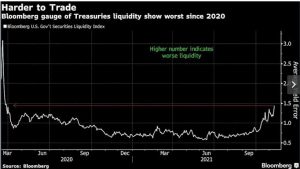Climate change: Set target to cut car use, minister told
4 min read
Car charging
BBC Roger Harrabin – BBC environment analyst – June 22, 2021
Shifting to electric vehicles will still leave the UK with serious transport problems, a report has said.
The IPPR think tank said emissions will fall, but the number of cars on the road will continue to grow.
It foresaw a 28% increase in car ownership by 2050, leading to more jams and harm to the economy.
But the government said it had plans to make transport greener and it was committed to offering people a range of travel options.
Transport Secretary Grant Shapps said in March that car use must shrink.
The IPPR said Mr Shapps’ long-awaited Transport Decarbonisation Strategy should harmonise with this by committing to peak car ownership by 2030.
Unless there is a change in policy, car ownership is expected to be driven up by a growing economy and increasing population.
The IPPR% said failure to tackle this will have negative effects on:
- Health: Walking and cycling (when practical) are healthier than sitting in a car.
- Resources: An ever-expanding car fleet drains raw materials and energy.
- Urban space: Fewer cars would mean more trees, play space, and room for walkers and cyclists.
- Congestion: Traffic jams damage the economy and lead to demand for more and bigger roads.
- Inequality: Allowing current trends to continue will widen the social divide between those who own cars and those who don’t.
However, a Department for Transport (DfT) spokesman said: “This report completely ignores the wide range of plans to make our transport network greener than ever, which will be underlined in our upcoming Transport Decarbonisation Plan.”
He said there would be a £2bn package for active travel, which is the largest sum ever committed to increasing cycling and walking in the UK.
Nearly 8 out of 10 people (78%) support measures to reduce road traffic in their neighbourhood.
He added that the government has invested heavily on infrastructure for trains and buses.
But the IPPR said that a £27bn roads programme benefits drivers and that its citizens’ juries on environmental issues show the public are more radical than ministers.
Its South Wales Valleys citizens’ jury said: “Electric cars are only part of the answer; we also need fewer car trips overall, so a move to electric vehicles must only happen in combination with public transport improvements and a reduction in journeys.”
The IPPR’s proposals to achieve the UK’s low-carbon transition fairly include a national guarantee to make it possible to live a good life without needing to own a car.
It says this should include seven-day public transport for all areas, and the principle that everyday needs should be accessible within a 20-minute walk, cycle or public transport trip.
The report says ministers should introduce a “help-to-move scheme” with grants and loans to help people buy cycles, electric scooters, e-bikes or electric vehicles where they need them.
Luke Murphy, head of the IPPR Environmental Justice Commission, said:
“The imperative for urgent action [in cutting CO2] creates a once-in-a-generation opportunity to put in place a new approach to how we all travel.
“The government’s current preferred strategy places an overwhelming focus on the shift to electric vehicles. Such an approach will not deliver for people or planet.”
Edmund King, AA president, told BBC News: “Individuals should choose the most relevant form of transport and this will include walking, cycling, e-mobility, public transport – and indeed driving.
“One must question whether some of the aspirations in the IPPR report are affordable, achievable or desirable – such as having public transport seven days a week in rural areas,” he said.
Steve Gooding from the RAC Foundation said: “The challenge for government is that we’re not just going to have to think about how we travel, but when, where and even whether we continue to travel in the ways that had become the norm pre-Covid.
“That means changing our lifestyles, which could be better for us all in the round, but might not seem immediately attractive.”
He said autonomous vehicles might offer the “tantalising” longer-term prospect of fewer people owning cars but more sharing them.
That would reduce the demand for parking, but with massively increase usage per vehicle.
He added: “This looks to be a more viable prospect than a 24/7 rural bus or train service as we know it today carrying relatively few people at huge cost to the taxpayer.”
He said meanwhile that ministers must ensure that the 300,000 new homes they plan each year are designed and located such that they don’t “bake in” car dependency.
KNOW MORE





